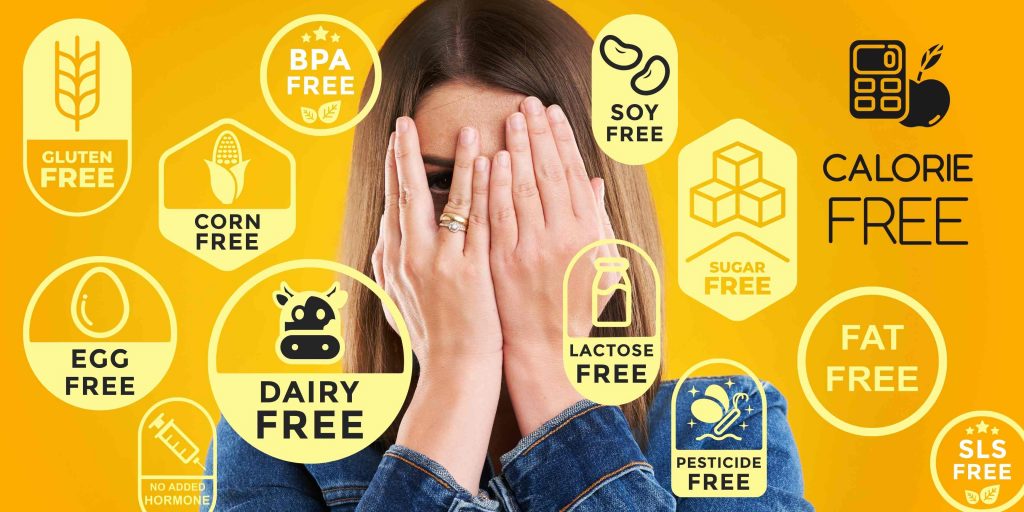Calorie counting and orthorexia and phytorexia

Counting calories, how does it start?
Obesity is a serious and growing problem of the 21st century, affecting both adults and children. It leads to many chronic illnesses and diseases of civilisation, shortens life and reduces its quality. Therefore, many people want to improve their diet in order to reduce their body weight or maintain it at the desired level.
One effective way to control one’s diet is the calorie counting method, which dates back to the publication of Lulu Hunt Peters’ book titled: “Diet & Health: With Key to the Calories” in 1922. Nowadays, dedicated apps, including Fitatu, are an indispensable help in controlling the calories delivered in meals. In it, you can keep a daily record of the meals you have eaten and receive data on calories consumed, macronutrients (such as proteins, fats and carbohydrates), vitamins and minerals. It is therefore a simple and effective method.
On the other hand, psychological eating disorders such as anorexia, bulimia, orthorexia or phytorexia, i.e. the obsession with being fit, are on the rise. Some believe that calorie counting can lead to or exacerbate these problems, so it is worth taking a closer look.
Calorie counting is not a cause of eating disorders, but an effect.
Research (see references) suggests that calorie-counting is not the cause of eating disorders, but rather their effect: people with low self-esteem related to their appearance, after unsuccessful attempts to slim down, develop feelings of guilt and start obsessively counting calories, e.g. using apps as a convenient tool. Its misuse is a symptom of existing problems with the perception of one’s body and a healthy relationship with food, not their source.
Orthorexia
Orthorexia manifests itself not only by limiting the amount of energy the body receives with a meal, but also by manically verifying the composition of food and eliminating certain ingredients from it – e.g. fat, sugar or gluten. People with such problems often switch from one weight-loss method to another within a year, convinced that the next one will be more effective and will ensure them reaching their goal – not always in accordance with the guidelines recommended for them (this disorder is called permarexia and it is often an intermediate stage to anorexia or bulimia). In any case, subordinating one’s life to meticulous control over the content and quantity of meals is worrying and requires consultation with a specialist, but the use of calorie-counting apps alone does not cause or exacerbate eating disorders. Interestingly, in the case of the aforementioned study, its calorie-counting participants using the app began weighing themselves twice less frequently than before the experiment began. This could be indicative of achieving a higher sense of self-confidence when using this method, making continuous weight measurement less important.
Prevention of eating disorders
A very important issue for the prevention of eating disorders is the way in which the app supports the process of managing our energy balance by:
- calculating caloric needs at a level that does not require restrictive restrictions, leading to malnutrition;
- showing a realistic time horizon for achieving the desired weight, taking into account the user’s initial weight, gender, height, age and lifestyle;
- avoiding any system of ‘punishing’ the user for exceeding the calorie limit on a given day or indicating forbidden products;
- positive motivation, encouraging healthy habits and allowing room for deviation from recommended limits;
- encouraging physical activity and including it in the energy balance, so that the calorie limit is increased by those burnt during exercise
- availability of home measurements with products so that you don’t have to obsessively weigh each product, but can choose how many pieces/slices/slices etc you have consumed
“Cheat days” are good
In every diet it is worth taking into account the so-called “cheat days”, i.e. days when we deviate from maintaining our established diet, which makes us reduce the risk of the phenomenon of a forbidden but coveted fruit, which can lead to its paroxysmal consumption.
These recommendations, present in the Fitatu app, help us avoid the possible negative aspects of this way of taking care of our health and figure. However, in any case, if we observe alarming symptoms in ourselves or our relatives in the area of appetite, mood, compulsive behaviour, excessive or too rapid weight loss, we should consult a specialist in order to rule out a potentially growing problem.
Fitatu App
Download the application from the Play Store or Apple Store and start counting your macros with us!
Do you prefer the web version? No problem. A basic web version is prepared for our subscribers. And now you can use the ORTHO-U discount code by going to https://www.fitatu.com/app/giftcode and get Fitatu Premium for 4,99€/month
What else can you find in Fitatu Premium?
- over 1000 recipes plus several new ones every month
- additional plans for intermittent fasting
- the ability to create shopping lists
- a choice of six ready-made menus full of meals to choose
- filtering products and recipes
- more synchronization with fit apps
- access to the application in the web version
- no ads!
Bibliography
- https://www.hiperpharm.pl/artykuly/ortoreksja-obsesja-zdrowego-jedzenia.html
- Jospe MR, Brown RC, Williams SM, Roy M, Meredith-Jones KA, Taylor RW. Self-monitoring has no adverse effect on disordered eating in adults seeking treatment for obesity: Effect of self-monitoring on disordered eating. Obesity Science & Practice. 2018;4(3):283-288. doi:10.1002/osp4.168
- https://www.damianparol.com/liczenie-kalorii/
- Hahn SL, Kaciroti N, Eisenberg D, Weeks HM, Bauer KW, Sonneville KR. Introducing Dietary Self-Monitoring to Undergraduate Women via a Calorie Counting App Has No Effect on Mental Health or Health Behaviors: Results From a Randomized Controlled Trial. Journal of the Academy of Nutrition and Dietetics. 2021;121(12):2377-2388. doi:10.1016/j.jand.2021.06.311
- https://www.rp.pl/zdrowie/art1159841-fitoreksja-5-sygnalow-ze-dbanie-o-sylwetke-staje-sie-niezdrowa-obsesja





